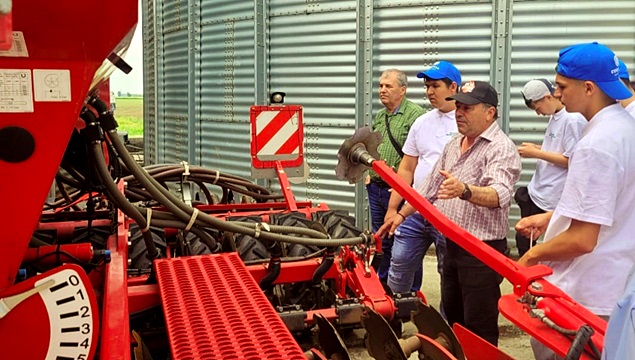1152

The Ministry of Education announces a significant increase in the number of available seats at agricultural high schools for the academic year 2023-2024, reflecting a positive trend in attracting students to these specialized educational institutions.
According to official data, the total number of seats for the academic year 2023-2024 at agricultural technology high schools, specializing in Agriculture, has increased by over 20% compared to the previous year.
Agricultural high schools have prepared attractive and relevant educational offerings, focused on the development of future farmers and entrepreneurs in agriculture.
These include entrepreneurship education programs, study visits, internships in European countries such as Spain, Portugal, or the Netherlands, and a wide range of professional qualifications in agricultural or related fields, such as veterinary technician, beekeeper, agricultural mechanic, horticulturist, agrotourism technician, food industry technician, plant protection technician, and organic farming technician.
In addition to the annual funding provided by the Ministry of Agriculture and Rural Development for the modernization of educational facilities, significant support for transforming high schools into modern learning centers will come through the National Recovery and Resilience Plan (PNRR), which allocates 43.6 million euros to 59 agricultural high schools.
Furthermore, Agriculture 4.0 is making its way into agricultural high schools: within the "Growing through Agricultural Education" program, in the academic year 2022-2023 alone, a total of 23 high schools accessed grants for equipment and study visits to farms equipped with state-of-the-art technologies.
"The Journey to 2050" - an innovative educational module on sustainable agriculture and Agriculture 4.0, along with study visits and practical demonstrations, serves as a motivating factor for young people to pursue a career in agriculture.
The Consortium "Growing through Agricultural Education" (CEA) continues to urge authorities to strategically allocate resources to support agricultural education and works closely with high schools, authorities, and partners in agribusiness to develop modern and relevant programs necessary for training qualified professionals prepared for the future of agriculture.





